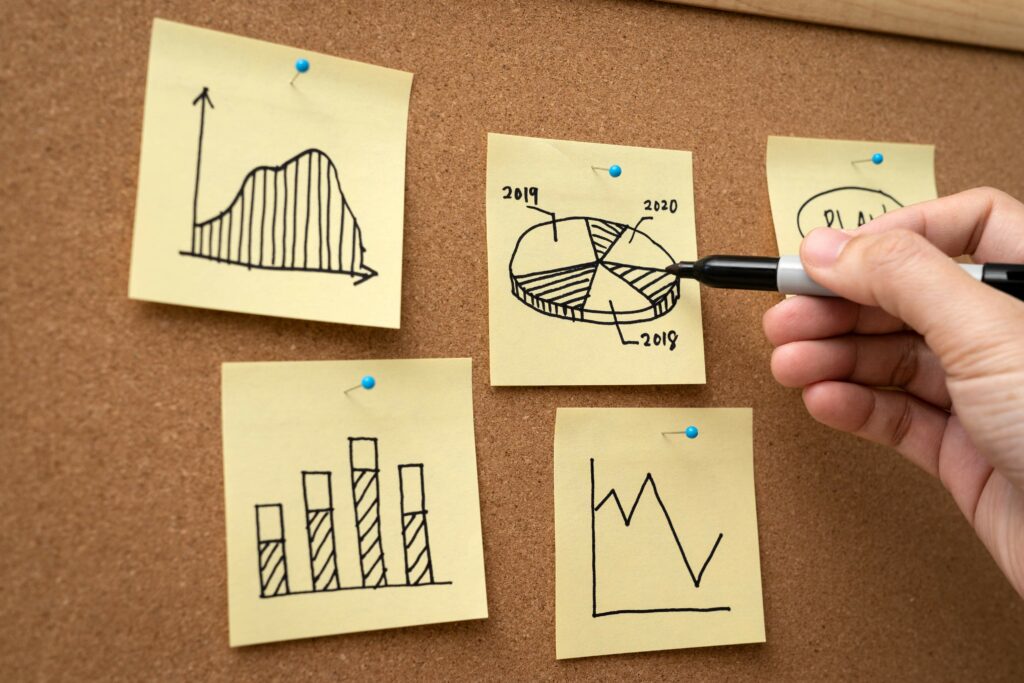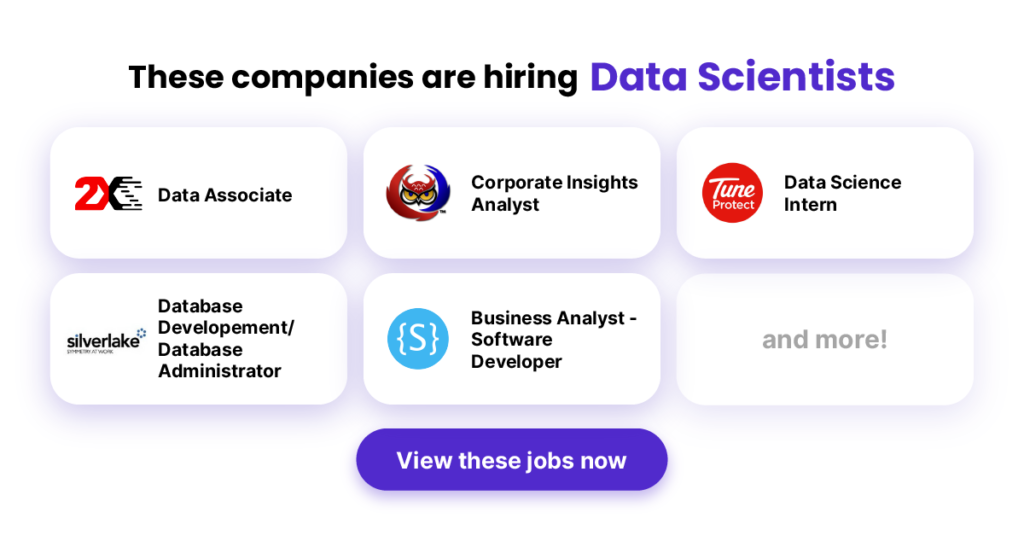If you have analytical skills and a genuine curiosity for information and its relationships, you might enjoy a career in Data Science.
What’s more, a career in Data Science looks promising no matter where you are on the globe. As more and more businesses grow reliant on Big Data to progress, skilled Data Scientists have become some of the most sought after professionals.
The good news is you don’t necessarily need a Bachelor’s or Master’s degree in Data Science to be a Data Scientist. Since skills needed for a career in Data Science can be easily learned online, a Data Science career is an accessible option for many.
In this guide, we cover what a Data Scientist does, as well as the Data Science skills and certifications you need to qualify for the role (with helpful resources!).
What does a Data Scientist actually do?

Data scientists are responsible for making sense of large amounts of data. They source, manage and analyse both structured and unstructured data and then communicate their findings to key stakeholders.
Data Scientists help companies use these results to make critical decisions for the benefit of their organisation or business. Their knowledge in data analysis allows them to understand the context behind certain results. Depending on the organisation’s goals, data scientists may also recommend the next best course of action.
What Data Science skills do I need?
A career in Data Science demands both technical and soft skills to deal with large amounts of data. As a Data Scientist, you will also find yourself collaborating with different team members to achieve your goal.
Below are 7 essential skills needed for any aspiring Data Scientist:
1. Big Data
Big Data is extremely large data sets (structured and unstructured) that are generated and transmitted from many different sources. The data is generated consistently each time we perform an action on our devices.
This data, when managed and analysed, can inform steps businesses or organisations should take for their benefit.
Large or complex data can be difficult to sort using traditional processing software. Because of this, many Data Scientists use open-sourced distributing systems such as Apache Hadoop or Apache Spark.
Get started with a selection of courses that tackle Big Data on Udemy.
2. Statistics and Probability

To interpret data, you must have a solid understanding of statistics. It will help you process complex problems and spot meaningful trends in data. There are 2 types of statistics to look into – descriptive and inferential.
Descriptive statistics describe the data studied by analysing, organising and then presenting the summarised data in an easy to understand way. Inferential statistics, on the other hand, make reasonable guesses and predictions about the data collected.
Don’t know where to start? No matter your level of proficiency, these free books on statistics for Data Science will be a big help.
3. Data Modelling
Data modelling is an important step in the design process for any IT system. This process lets you visualise an information system by creating a diagram or model to better see how certain data relate to one another.
Check out this article by Klipfolio to learn how different data modelling techniques can help the growth of businesses.
4. Data Visualisation

Data visualisation is when you translate data into graphical representations to showcase trends, patterns or other crucial insights. Check out this data visualisation cheat sheet by Codecademy.
5. Programming or Coding
Programming and coding skills are a must for data scientists. If you haven’t already, be prepared to learn programming languages such as JAVA and C++. Programs like SAS, R, and Python are also worth picking up.
If you’re a beginner and starting to feel overwhelmed, check out this video by Tina Huang, a data scientist and Youtube Creator, as she breaks down how to start coding in this Youtube video.
6. Machine Learning
Machine learning will come in handy for data forecasting and predictive modelling. New to machine learning? This computer scientist explains the concept in 5 different levels of complexity!
7. Communication

You’ll need to be an excellent communicator as a data scientist. A large part of the role requires you to communicate data and findings to people who aren’t familiar with technical terms.
Moreover, Data Scientist roles require you to coordinate tasks with different team members to acquire specific data. As a data scientist, you can expect to work closely with software developers and data engineers.
How do I become a qualified Data Scientist?
The typical requirement for a Data Scientist is a formal education in Statistics, Computer Science, or Information Technology. However, these days a university degree isn’t the end all be all.
For those of us who may not have the opportunity to pursue a Bachelor’s or Master’s degree in the related fields, there are more accessible (and sometimes quicker) options to consider.
Try applying for online courses from reputable training institutions that will not only accelerate your learning in Data Science, but also get you certified.
Build confidence and credibility with these data science certification courses:
1. Certificate Course in Data Science Using Python & R by 360 Digi TMG is a 3-month long certification program that will equip you with skills in Data Analytics, Data Mining, Machine Learning, Predictive Modelling, and Regression Analysis.
2. iTrain Asia is a trusted Training Provider with Hiredly. Instead of an all-encompassing course, they have separate R Programming and Python Programming certification courses for more comprehensive learning:
3. Have the basics covered? Get certified as a Data Science Specialist with iTrain Asia’s Certified Data Scientist Specialist (CDSS) program.
Their data science certification is industry-validated so you’ll walk away with an internationally recognised digital credential, opening you up to job opportunities in Malaysia and abroad.
TLDR?
===
Prepping for a career in Data Science is no easy feat, but having access to online learning is a great advantage – especially when you’re looking to expand or even change your career.
With that said, if you’re set on changing your career, be sure to check out this article on how to make a successful career switch. While you’re at it, update your resume with the help of our resume checklist too.
When you’re ready, kickstart your career in Data Science with jobs on Hiredly.

